The world’s most famous blue man, Paul Karason, also dubbed Papa Smurf, was born as a fair-skinned, freckled boy with ginger hair. In the 2000s, he became an internet sensation and made many TV appearances, openly talking about his condition. Let’s find out together why Karason turned blue and how he became a cautionary tale.
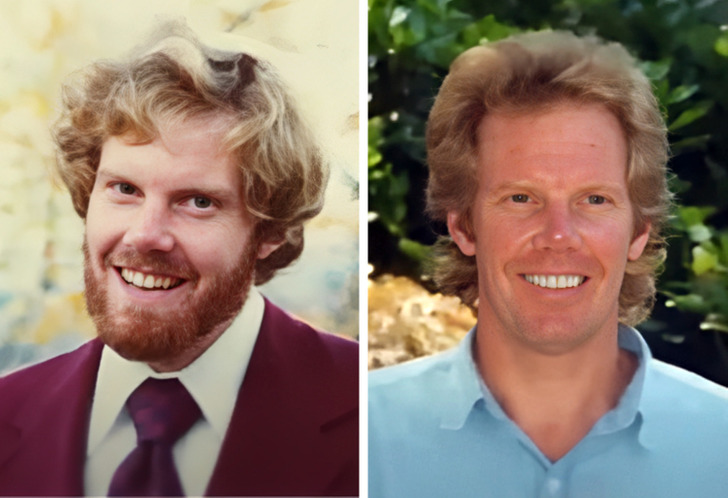
Paul Karason had a skin condition that made his skin flake, as well as acid reflux and arthritis. Doing his own research in order to improve these ailments, he found out about a solution of silver in water, also known as colloidal silver.
Colloidal silver was widely used as an antibiotic back before penicillin was invented in the 1930s. It was banned in 1999 in over-the-counter medications after scientists found that it can severely damage internal organs.

The late Paul Karason and his wife, Joanne
Karason drank what he believed was a miracle cure for over 10 years. Moreover, he even began to apply a silver preparation directly to his skin; he claimed his acid reflux and arthritis just went away. “I had arthritis in my shoulders so bad I couldn’t pull a T-shirt off. And the next thing I knew, it was just gone,” he shared.
Due to the silver accumulation in his skin, he started to turn blue and suffered from a permanent and rare condition called argyria. Only when Karason met an old friend who asked him, “What have you done to yourself?” did he begin to realize he’d become blue.
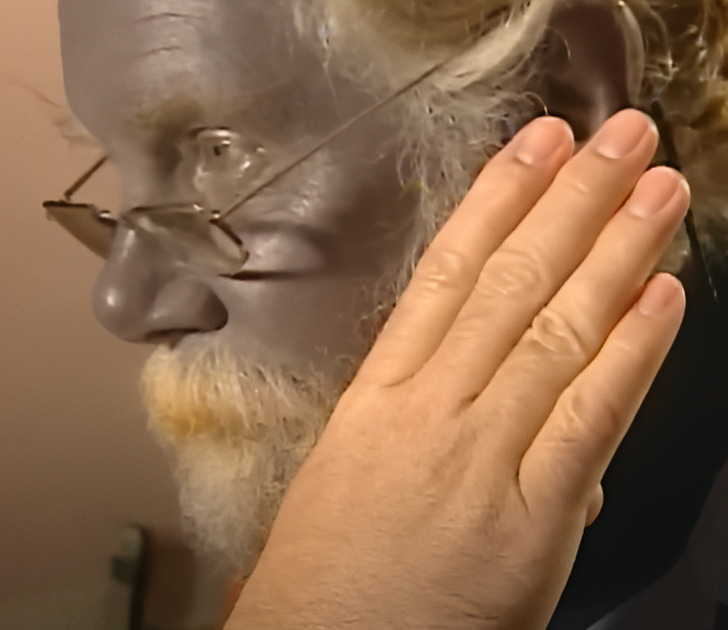
Karason claimed his blue skin had many advantages — he never got sunburns or had to wear sunglasses. There were some side effects he did not appreciate, however, such as folks “being less than polite” to him. Moreover, Karason confessed he couldn’t get a job because of employers’ resistance to hiring “people that are blue or that are noticeably different.”
Sadly, Paul Karason passed away in 2013 when he was 62 years old due to heart complications.
Papa Smurf’s story serves as a valuable lesson about the importance of being careful when it comes to at-home remedies. While it’s natural to want to find easy solutions to health problems, it’s important to be aware that such remedies can sometimes pose serious risks. It’s always better to consult a doctor and follow their advice for a safe and effective treatment.
City Woman Tried to Ruin My Life, but Losing Her Memory Changed Everything — Story of the Day

A wealthy stranger showed up uninvited, demanding my farm as if it were hers to take. He dismissed my family’s legacy as worthless. I refused, but his entitled smirk told me this fight was far from over.
The morning air was carrying the faint scent of tilled soil and wildflowers. The farm stretched before me, rolling fields kissed by the rising sun. Every corner whispered a memory: Dad hammering the first fencepost, Mom planting lilacs by the barn.

For illustration purposes only | Source: Midjourney
Suddenly, a low hum broke the silence. I frowned, tilting my head. The sound grew louder. A car engine. Not a truck or the familiar rattle of my brother Steven’s old sedan. Squinting, I saw a sleek, black car gliding down the dirt road.
“Great,” I muttered under my breath.
Then, the woman appeared. She was tall, elegant, and looked like she’d been dropped off from another planet. Her suit screamed money, and not a single strand of her perfectly styled hair dared move in the breeze.

For illustration purposes only | Source: Midjourney
“Are you the owner of this farm?” Her voice was the kind that didn’t waste time with pleasantries.
“Yes. Why?”
“I am Sophia. I own the surrounding properties. I’m here to buy yours.”
“It’s not for sale.”
“Not for sale? Once my resort opens, this… farm will be worthless.”
“It’s my family’s land.”

For illustration purposes only | Source: Midjourney
She scoffed. “Sentimental and stubborn. What a combination. We’re not finished here.”
Her car door slammed, and she drove off, leaving behind a cloud of dust. I stood on the porch, gripping my coffee mug tighter. I felt something coming.
***
The next day, I stepped outside, expecting the quiet start of my usual chores. Instead, chaos greeted me like an unwelcome guest. Chickens darted across the yard, squawking in panic. Goats were hopping over fences like it was some sort of barnyard Olympics.
Who let the animals out?

For illustration purposes only | Source: Midjourney
Then I saw her. Sophia.
She was perched precariously on a ladder by the barn, her hands busy with one of the old shutters. But her outfit… A sleek black dress and designer heels that had no business being anywhere near a farm.
“What are you doing up there?” I marched closer.
“Improving the aesthetic!” she shot back, not even turning her head.
Suddenly, the ladder wobbled.

For illustration purposes only | Source: Midjourney
“Sophia…”
Her arms flailed, and for a brief, ridiculous moment, she looked like a very glamorous windmill. Then gravity won. She tumbled to the ground in a heap of expensive fabric.
I rushed over, kneeling beside her. “Are you okay?”
Her eyes fluttered open, but the vacant, confused look in them made my stomach drop.
“Who… are you?” she whispered.

For illustration purposes only | Source: Midjourney
***
At the hospital, the doctor adjusted his glasses. Sophia sat on the exam table, staring blankly at me. She looked… lost.
The doctor turned to me. “Are you a relative?”
“Oh, no, I’m not…” I started, but then I stopped.
Relative…
I looked at Sophia again, her confusion evident in her distant stare. The doctor was still watching me, waiting for an answer, but my thoughts raced ahead.

For illustration purposes only | Source: Midjourney
What if I say yes? What if I tell him we are family?
A voice in my head immediately protested. It wasn’t true. It wasn’t right. But then another thought slid in. Maybe that is fate’s way of teaching her something.
The silence stretched, and the doctor raised an eyebrow. “Miss?”
“Yes,” I said. “She’s my sister.”
The words sounded strange, leaving my mouth, but once they were out, I couldn’t take them back.
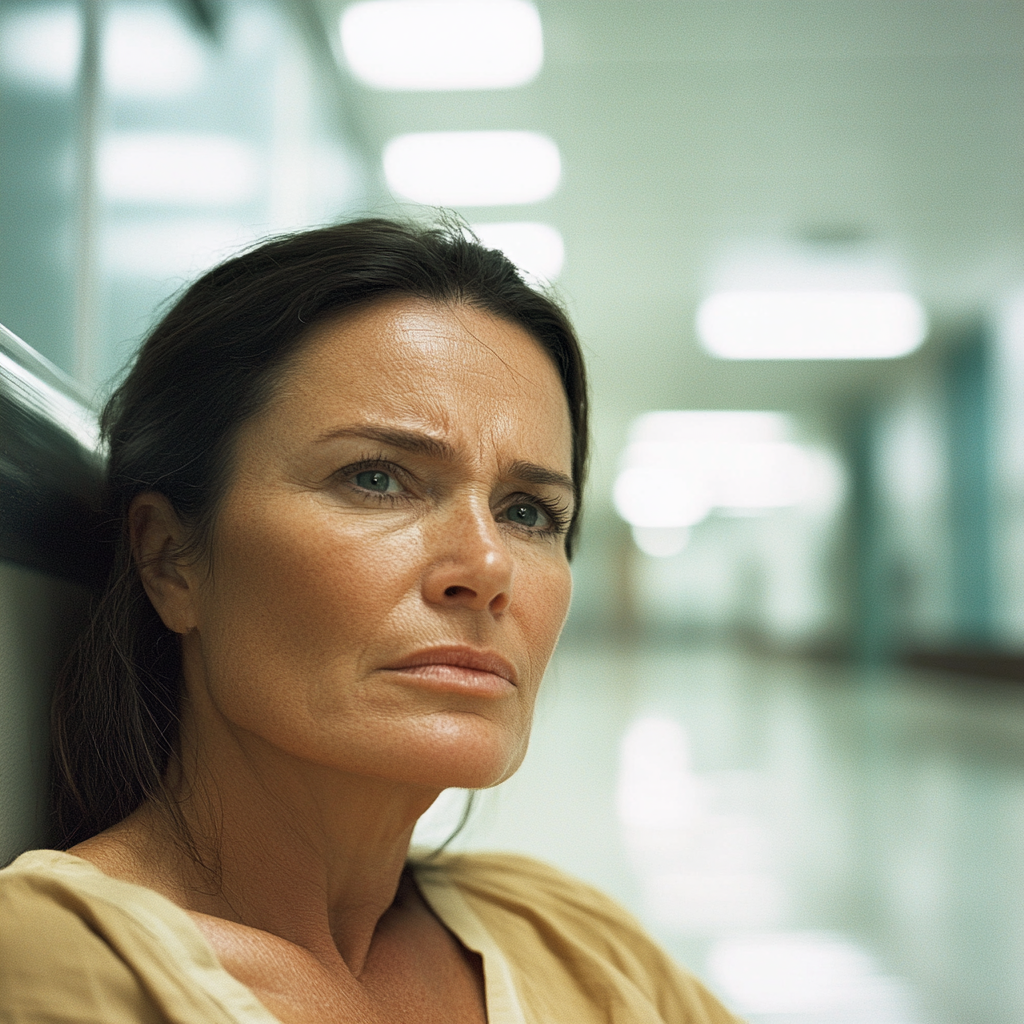
For illustration purposes only | Source: Midjourney
Sophia turned to me. “Sister?”
“Yes,” I said quickly, stepping closer. “You’ve been staying with me at the farm with me and Steven.”
She blinked. “I… I don’t remember.”
On the drive back to the farm, I couldn’t help but smile faintly to myself. That was a mess of my own making, no doubt about it. But it was going to be one heck of a ride.

For illustration purposes only | Source: Midjourney
***
The first morning with Sophia on the farm started with cautious optimism—and spiraled into chaos faster than I could have predicted.
“Okay, Sophia,” I said, handing her a small wooden stool and a pail. “Milking a cow is simple. You just have to…”
“Simple?” she cut in, her voice teetering between disbelief and dread. “Do you see these hands? These nails?”
What followed was a symphony of frustrated groans and a bucket that stayed empty. Sophia finally stood, tossing her hands in the air.

For illustration purposes only | Source: Midjourney
“This cow hates me. She’s mocking me with her… her smug mooing!”
“Move on to the chickens,” I suggested, hiding a smirk.
She stormed toward the chicken coop, muttering under her breath. Moments later, a screech pierced the air. I ran over to find her flailing her arms as chickens scattered, their wings flapping wildly.
“They’re attacking me!” she shouted, diving behind a bale of hay.
“They’re chickens, not velociraptors. Just grab the eggs and get out.”

For illustration purposes only | Source: Midjourney
The goats, sensing fresh prey, were next. They circled her like tiny, mischievous sharks, tugging at her scarf and nibbling the hem of her jacket.
By midday, Sophia looked like she’d survived a barnyard apocalypse. Her once-perfect outfit was smeared with dirt, and her hands scratched.
“I can’t do this,” she said, collapsing onto the porch. I saw tears welling up in her eyes. “I’m not made for… whatever this is.”

For illustration purposes only | Source: Midjourney
“This is your life.”
She shook her head, disbelief etched into her face. Watching her sit there, exhausted and defeated, I felt a twinge of pity, but not for long.
You think you can waltz in, tear this place apart, and reshape it into your vision without understanding it? No.
You’re going to feel what life here is like. You’re going to understand why it’s worth protecting.
***
Steven arrived later that afternoon and quickly jumped in to help.

For illustration purposes only | Source: Midjourney
“Come on,” he said to Sophia, handing her a pitchfork. “You’ll feel better once you accomplish something. Let’s start with the chicken coop.”
To my surprise, she followed him, earning a reluctant smile from Sophia.
Over the next few days, Steven stuck around, teaching her how to carry hay bales, clean stalls, and wrangle the goats without losing her mind or her scarf.

For illustration purposes only | Source: Midjourney
By the end of the week, there were small victories. Sophia even cooked breakfast for us one morning. Granted, her pancakes looked more like hockey pucks, but we ate them anyway, laughing until tears streamed down our faces.
***
At the end of the week, I decided Sophia needed a break. Life on the farm had been hard on her, and I figured a little fun might do her some good. We hosted a barbecue, inviting neighbors to join us.
To my surprise, Sophia joined in.

For illustration purposes only | Source: Midjourney
“This is amazing!” she said, biting into a piece of corn on the cob. “I didn’t know food could taste this fresh.”
I laughed. “Welcome to the real deal.”
A group of kids called out to her as they ran toward the lake. “Sophia, come swim with us!”
“Oh no,” she said, backing away, hands raised. “Swimming is not my thing.”
Steven, carrying a plate of burgers, chimed in. “What’s the matter? Afraid you’ll ruin your makeup?”
“I’m not wearing any!” she shot back, tossing her hair dramatically.

For illustration purposes only | Source: Midjourney
“Then you’ve got no excuse. Go on, they won’t bite.”
The kids tugged at her hands, and with a resigned laugh, she let them drag her to the water. Minutes later, I saw her wading in, splashing around with the kind of carefree energy I’d never imagined from her.
“Never thought I’d see the day,” Sreven said, shaking his head.
As the evening wore on, Sophia drifted back toward the fire.
“You’ve adjusted pretty well,” Steven said, glancing at her. “I didn’t think you’d last a day out here, to be honest.”

For illustration purposes only | Source: Midjourney
“Wait..” Sophia said, pulling the blanket tighter around her. “But… I’ve been living here all the time.”
He chuckled. “Oh, yes, I almost forgot that you are… um, my sister.”
As I stood by the fire, listening to their exchange, Steven’s words hit me like a jolt.
A pang of doubt wormed its way into my thoughts. I couldn’t ignore the way Steven looked at her. They had a connection that was undeniably growing, but my lie…
What have I done? How long before the messy truth catches up with me?

For illustration purposes only | Source: Midjourney
Suddenly, a black car pulled up, and as the woman stepped out, her piercing gaze fixed on Sophia. Whoever she was, she hadn’t driven all the way for nothing.
I felt the tension crackle through the air like an approaching storm. The woman was overdressed as though she were attending a red carpet event instead of stepping onto a farm. Her stiletto heels sank into the dirt with each step, and she paused to examine the ground, wrinkling her nose in open disdain.
“Sophia, we are going home,” she said.
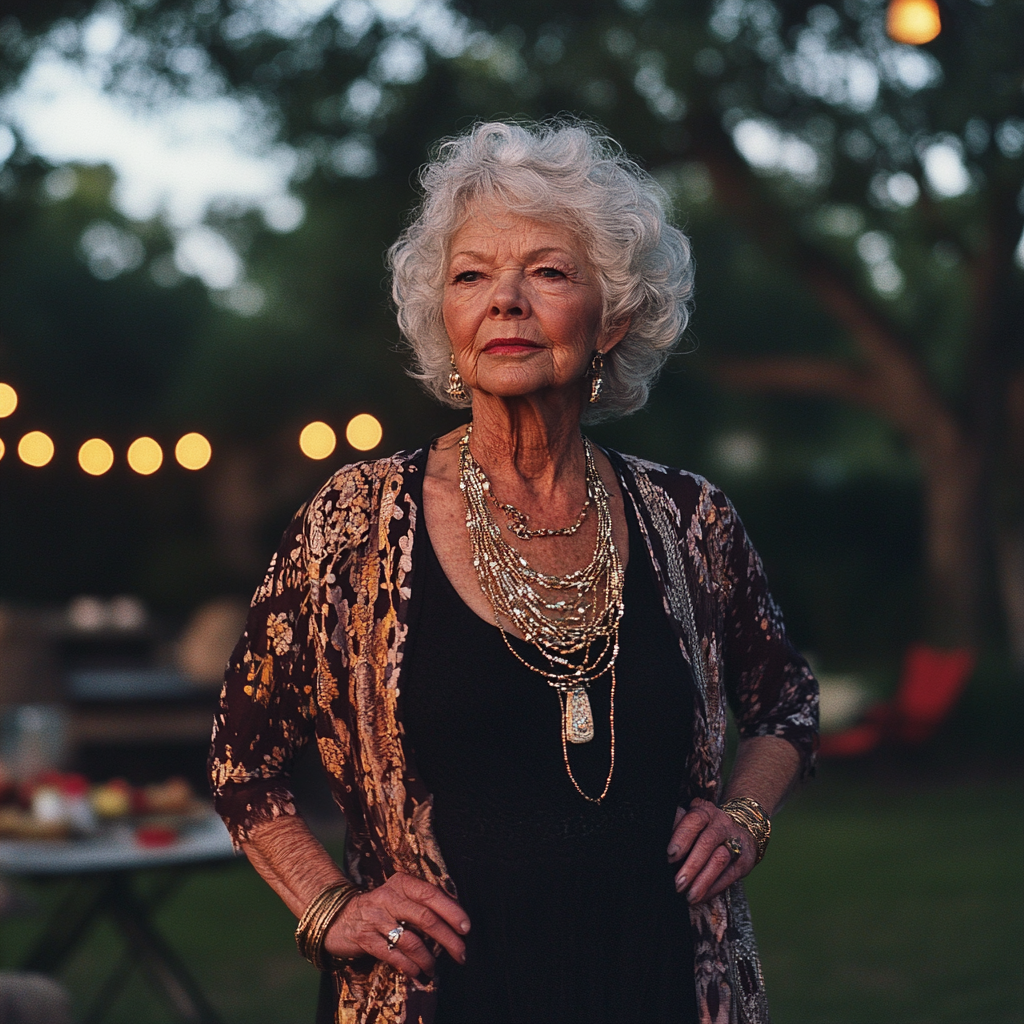
For illustration purposes only | Source: Midjourney
Sofia looked up from her plate of grilled chicken, her face smudged with dirt.
“What are you wearing? And… what is that on your face?”
I stepped forward. “Ma’am, I think we need to talk.”
Her eyes snapped to me. “I am Sophia’s mother. And who, exactly, are you?”
“I’m the owner of this farm. Sofia’s been staying with me. She lost her memory after an accident…”
“You what?! You’ve been keeping my daughter here?”
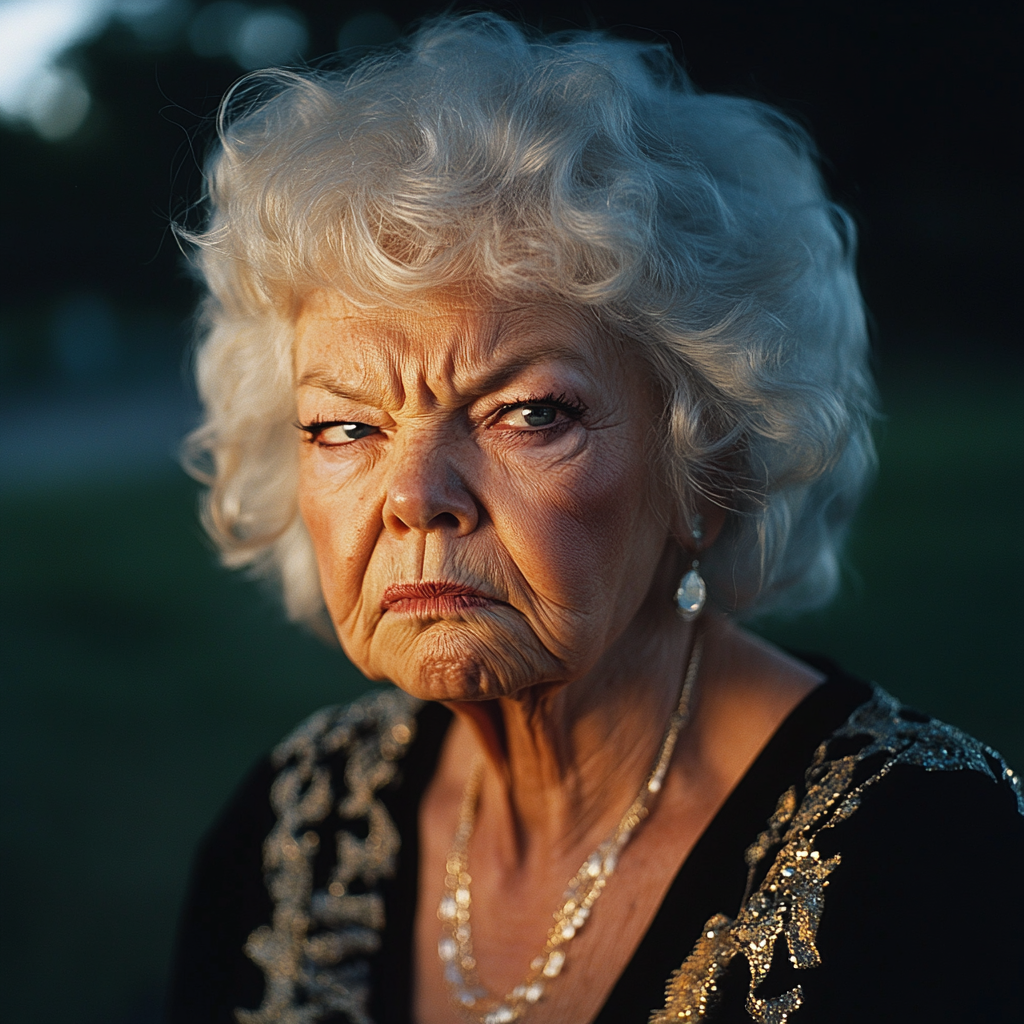
For illustration purposes only | Source: Midjourney
Her shrill accusations echoed across the yard, silencing the neighbors. All eyes turned to us.
“It wasn’t like that. I told her she was family. I thought…”
“You thought?” she spat. “You thought you had the right to lie to my daughter? To keep her here, away from her life, her family? Do you have any idea who she is? This farm is nothing compared to the world she belongs in!”
As if triggered by those words, Sofia stiffened. The warmth in her eyes disappeared, replaced by a cold, distant look.

For illustration purposes only | Source: Midjourney
She turned to me. “I’ve remembered everything now. You’ve been lying to me.”
By the time she left with her mother that night, it was as if the Sofia we had known on the farm had never existed.
***
The days that followed were unbearably quiet. Her absence filled the house like a heavy shadow. I missed her clumsy attempts at chores, her dry humor, and even her dramatic outbursts. For the first time, the farm felt… empty.

For illustration purposes only | Source: Midjourney
I found her business card while packing up the belongings she’d left behind. An address in the city stared back at me, daring me to do something.
In a few hours, I arrived at her office and braced myself for rejection. The receptionist informed Sofia of my arrival. Within minutes, she appeared.
To my shock, she hugged me tightly, tears slipping down her cheeks.

For illustration purposes only | Source: Midjourney
“I’m sorry. For everything. For who I was.”
I pulled back slightly, searching her face. “Why now?”
She smiled faintly. “Because I miss it. The simplicity, the honesty. And most of all, I miss Steven.”
We returned to the farm together. That time, Sofia wasn’t just a visitor. She was family. She and Steven built a life here, one full of love, laughter, and the kind of grounding no luxury resort could ever provide.
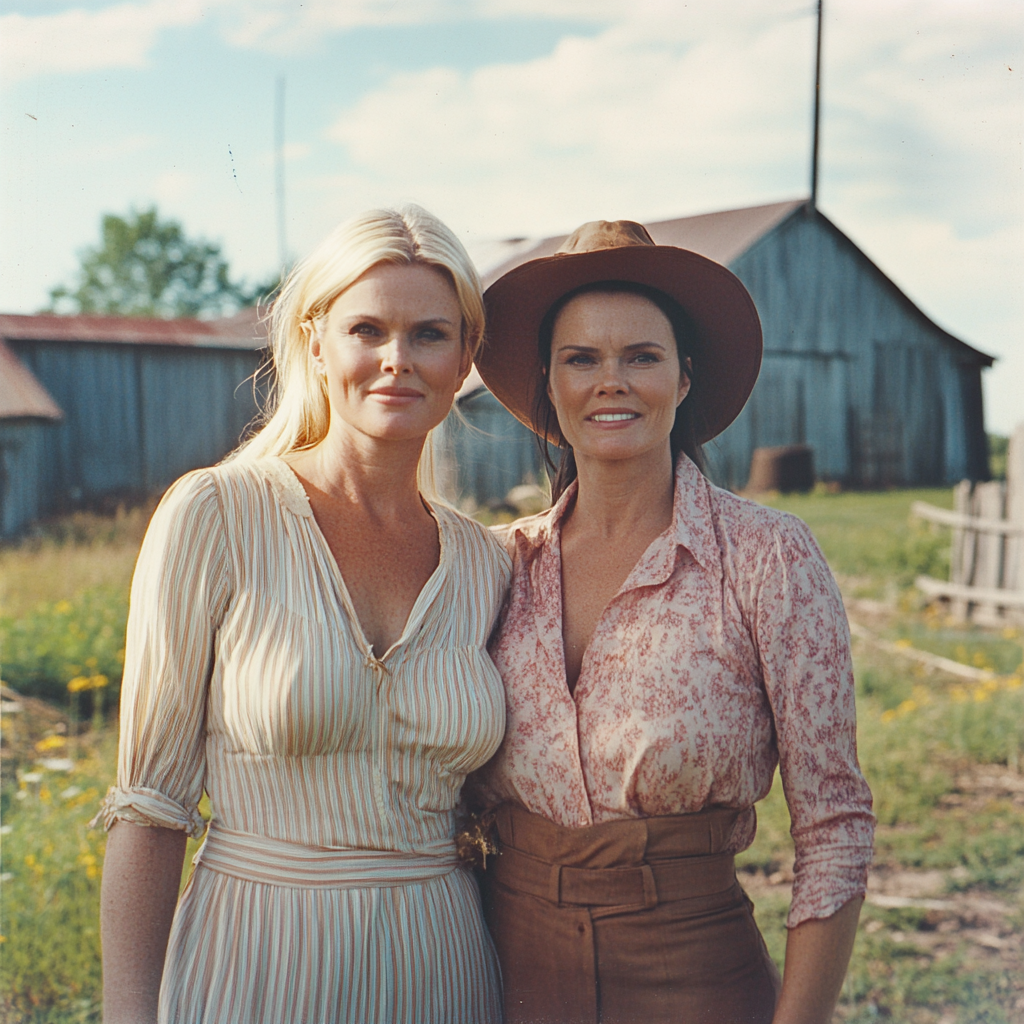
For illustration purposes only | Source: Midjourney
Tell us what you think about this story, and share it with your friends. It might inspire them and brighten their day.
If you enjoyed this story, read this one: On my wedding day, everything seemed perfect until my past walked into the ceremony uninvited. A promise made years ago and a man determined to remind me of it threatened to unravel the life I’d built. Could I let go of the past, or would it destroy my future? Read the full story here.
This piece is inspired by stories from the everyday lives of our readers and written by a professional writer. Any resemblance to actual names or locations is purely coincidental. All images are for illustration purposes only. Share your story with us; maybe it will change someone’s life.
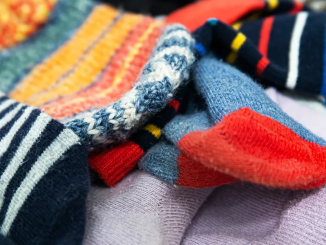


Leave a Reply